Topic 5– Use a Trigonometry in Building Layout

Source: https://commons.wikimedia.org/wiki/File:Surveyor_s18.jpg
Trigonometry can be used to assist in building layout. Many locations can be laid out from a single point with blueprint information, a transit, and a few mathematical equations.
Curves and arcs can also be laid out using trigonometry and a transit or theodolite.
A more common use of a transit is to determine the height of an object.
For more information refer to Instruction Sheet on Brightspace, CNST 204 (p. 61-73):
Review Questions
- What is the formula used to find the tangent of an angle?
- Solve the following
- In figure 27, calculate the angle of A:
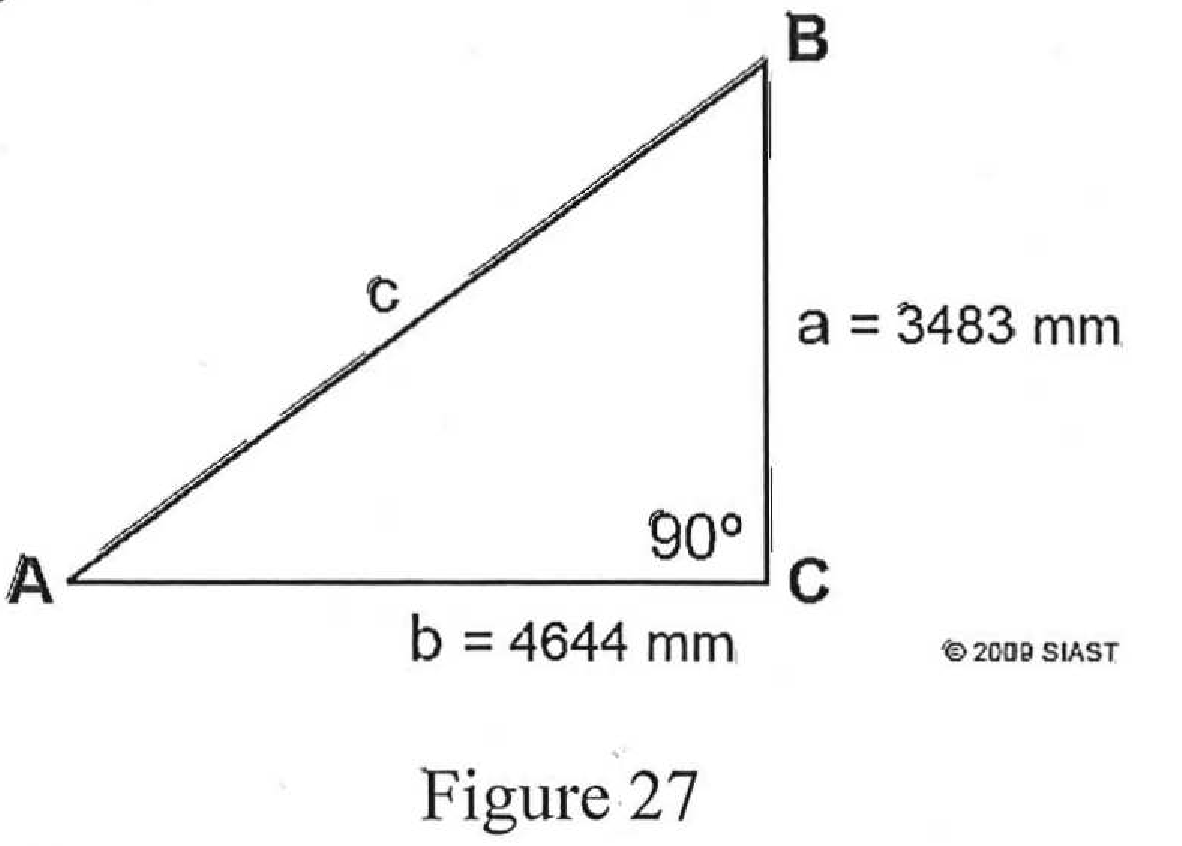
- In figure 28, calculate the length of side “a”.
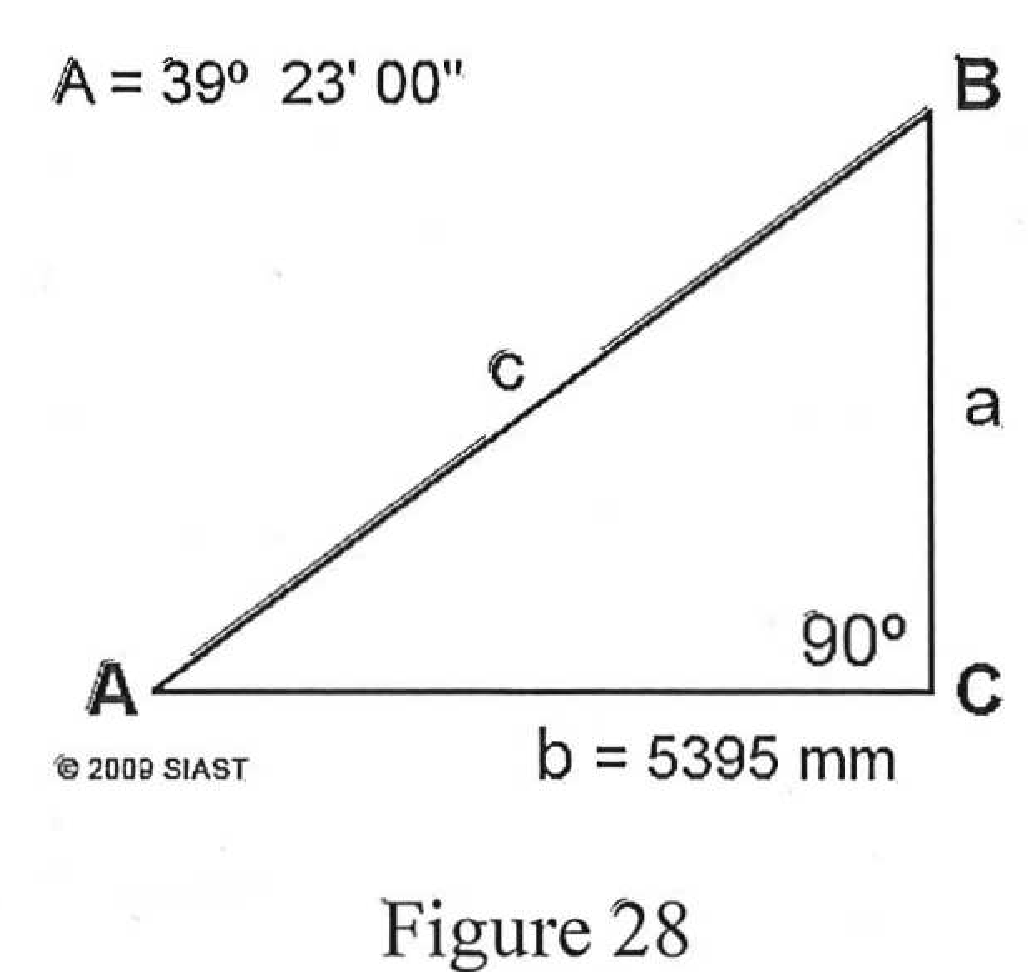
- In figure 29, calculate the length of side “b”
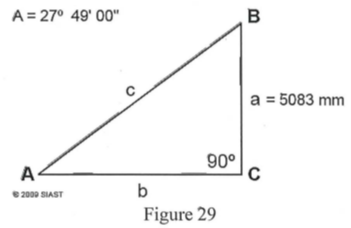
- Calculate the angle to be turned and the distances to be taped to lay out the building with the transit set up over point a only.:
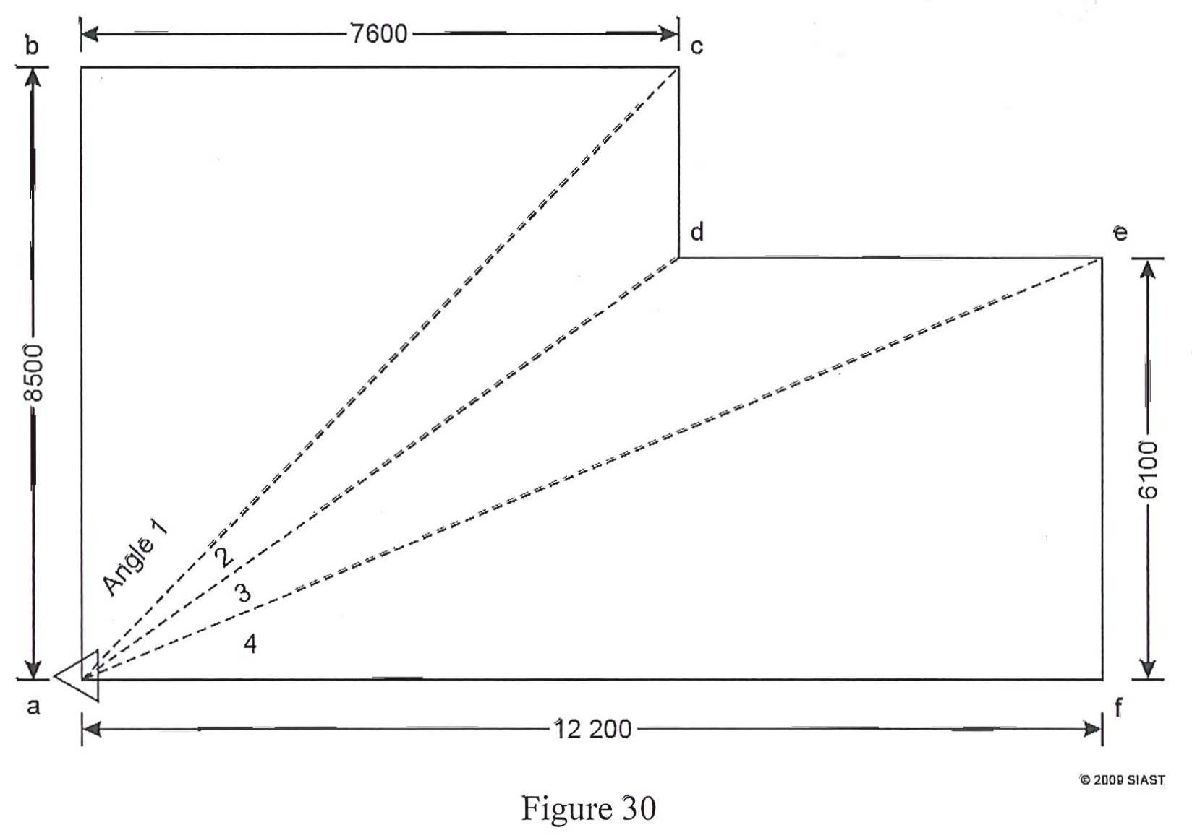
- Figure 31 shows a concrete grade beam with a curve in it. The total angle of the curve is 45°. The radius of the curve is 28 000 mm. Divide the curve into 9 parts and calculate the angles of deflection and the lengths of the chords so the curve can be laid out with a transit.
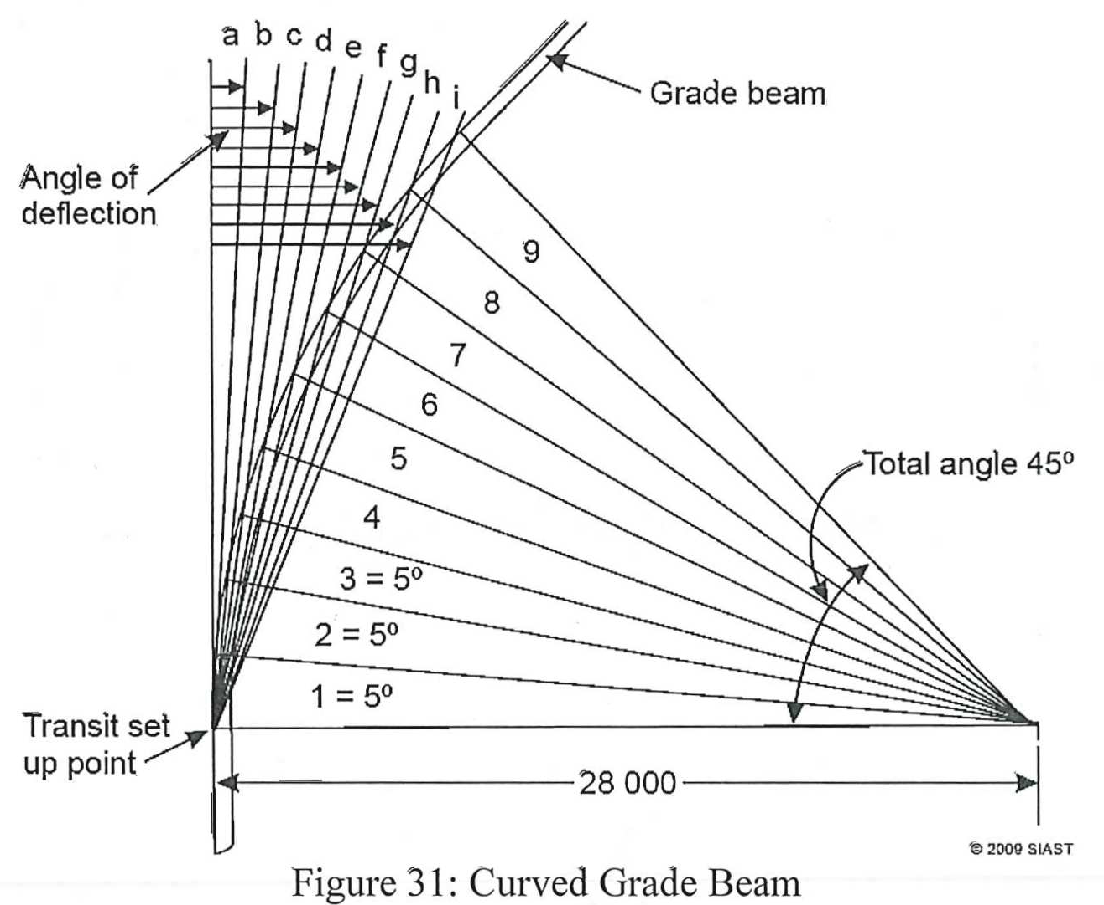
- Calculate the height of the wall in the diagram below:
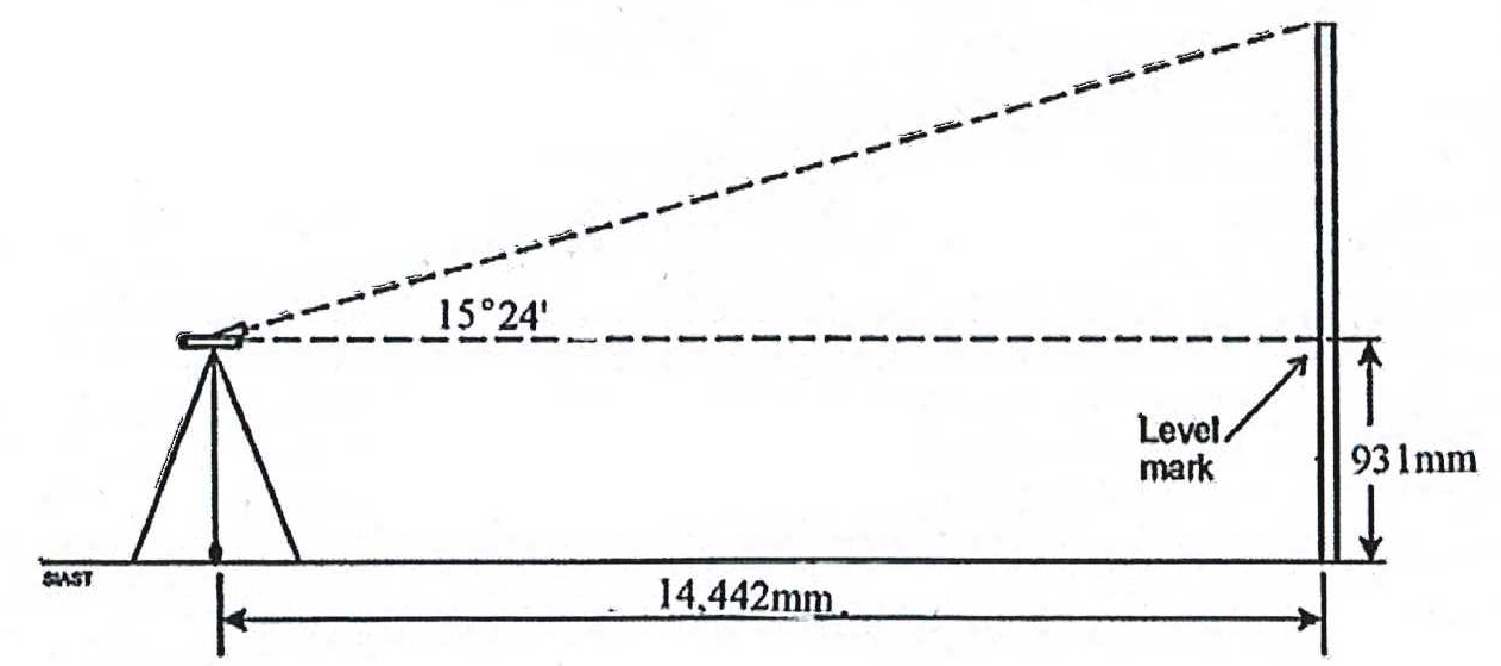
Answers:
-
- Angle A is 36°52’12”
- Side a is 4429 mm
- Side b is 9634 mm
-
- Angle 1 is _____ (41°48’)
- angle 3 is _____ (63°26’)
- Distance ac is _____ (11402 mm)
- distance ae is _____ (13 640.01 mm)
- Angle 2 is _____ (51° 15’)
- angle 4 is _____ (90°)
- Distance ad is _____ (9745.25 mm)
- distance af is _____ (12 200 mm)
-
- Angle 1 is (41°48’)
- angle 3 is (63°26’)
- Distance ac is (11402 mm)
- distance ae is (13 640.01 mm)
- Angle 2 is (51° 15’)
- angle 4 is (90°)
- Distance ad is (9745.25 mm)
- distance af is (12 200 mm)
- Size of the first angle of deflection “a” (2°30’)
- Length of chord for “e” _____ (12 121 mm)
- Size of sixth angle “f” _____ (15°00’)
- Length of chord for “f” _____ (14 494 mm)
- Size of seventh angle “g” _____ (17°30’)
- Length of chord for “g” _____ (16 840 mm)
- Size of eight angle “h” _____ (20°00’)
- Length of chord for “h” _____ (19 153 mm)
- Size of final angle “I” _____ (22°30’)
- Length of chord for “I” _____ (21 430 mm)
- The height of the wall is 4909 mm.
